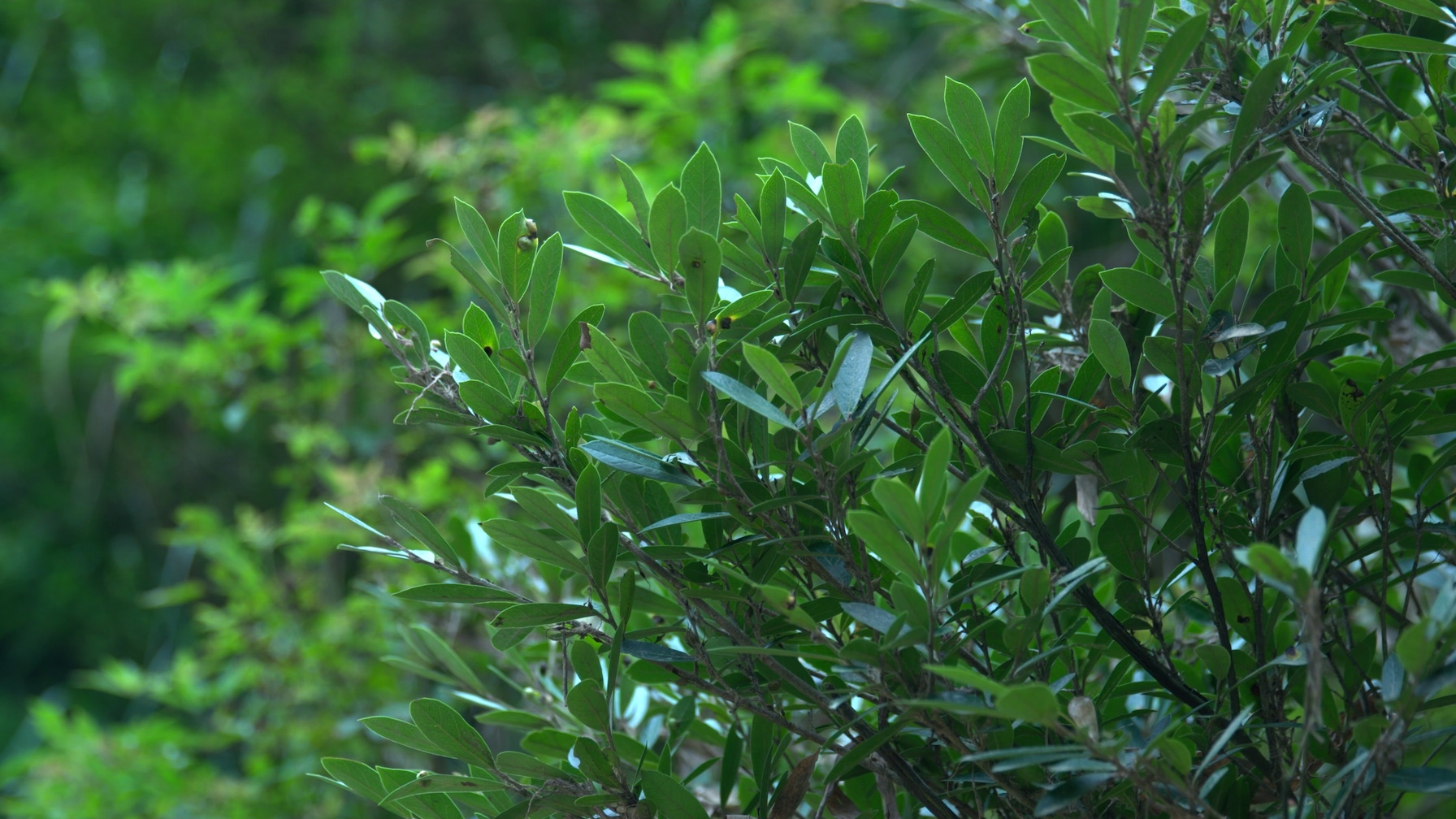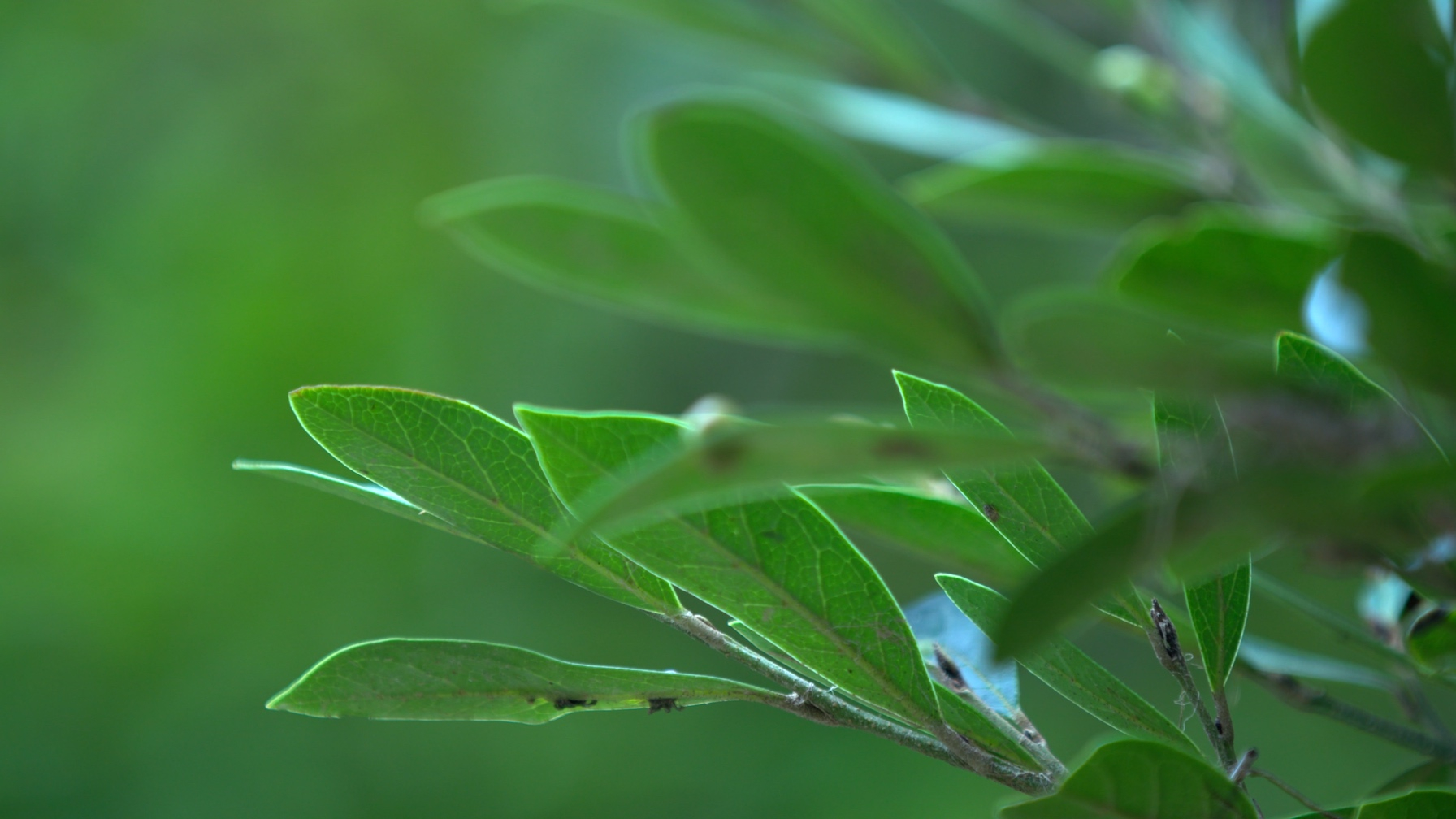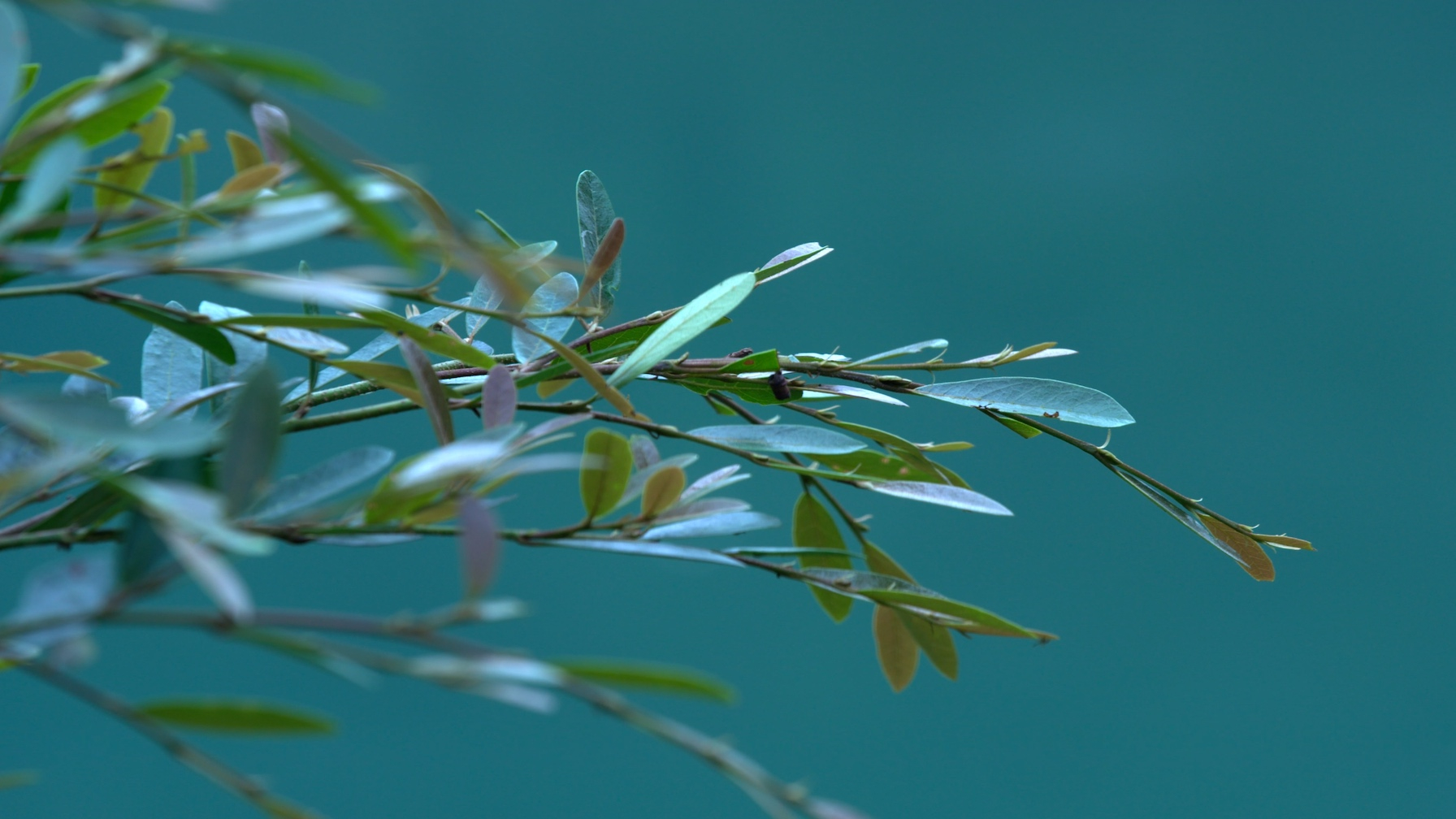
Racemose mosquitomam, or Distylium racemosum, is an evergreen shrub that can be found at low elevations in the hilly areas.

Racemose mosquitomam /Photo taken by CGTN Nature film crew in the Mayang River National Nature Reserve in southwest China's Guizhou Province
Bitten by parasitic insects, the leaves grow galls on the surface. The insects then "hatch" from the galls, hence it was called "mosquito mum tree" by ancient Chinese, who thought the tree could produce bugs.

Racemose mosquitomam /Photo taken by CGTN Nature film crew in the Mayang River National Nature Reserve in southwest China's Guizhou Province
It blooms with little red flowers in spring. As a foliage plant, however, the flowers are cut off to ensure the growth of lush leaves.

Racemose mosquitomam /Photo taken by CGTN Nature film crew in the Mayang River National Nature Reserve in southwest China's Guizhou Province
The racemose mosquitomam usually grow to about two meters. Some of the trees, however, reach a height of 16 meters in the Jianfengling tropical rainforest in southern China's Hainan Province.
China's Flora Tour
From the wetlands along the coast to the dense rain forests hidden in the southwest of China, all boast an array of plant species. In this series, we will go on a tour to learn about some of the most iconic flora in different provinces and see how they live in harmony with the local climate and topography.
Read more:
China's Flora Tour: Guizhou-The orchid with beautiful tassels
China's Flora Tour: Guizhou-When tulip meets traditional jacket
China's Flora Tour: Guizhou-A glance at the gesneria in SW China karst forest
China's Flora Tour: Guizhou-The curative powers of the 'seven leaves, one flower' plant
China's Flora Tour: Guizhou-The harbinger of spring on Mount Fanjing
China's Flora Tour: Guizhou-Elegant orchids bloom in the deep valley
(Cover photo via VCG, designed by CGTN's Li Wenyi.)
(If you want to contribute and have specific expertise, please contact us at nature@cgtn.com.)

Copyright © 2018 CGTN. Beijing ICP prepared NO.16065310-3
Copyright © 2018 CGTN. Beijing ICP prepared NO.16065310-3